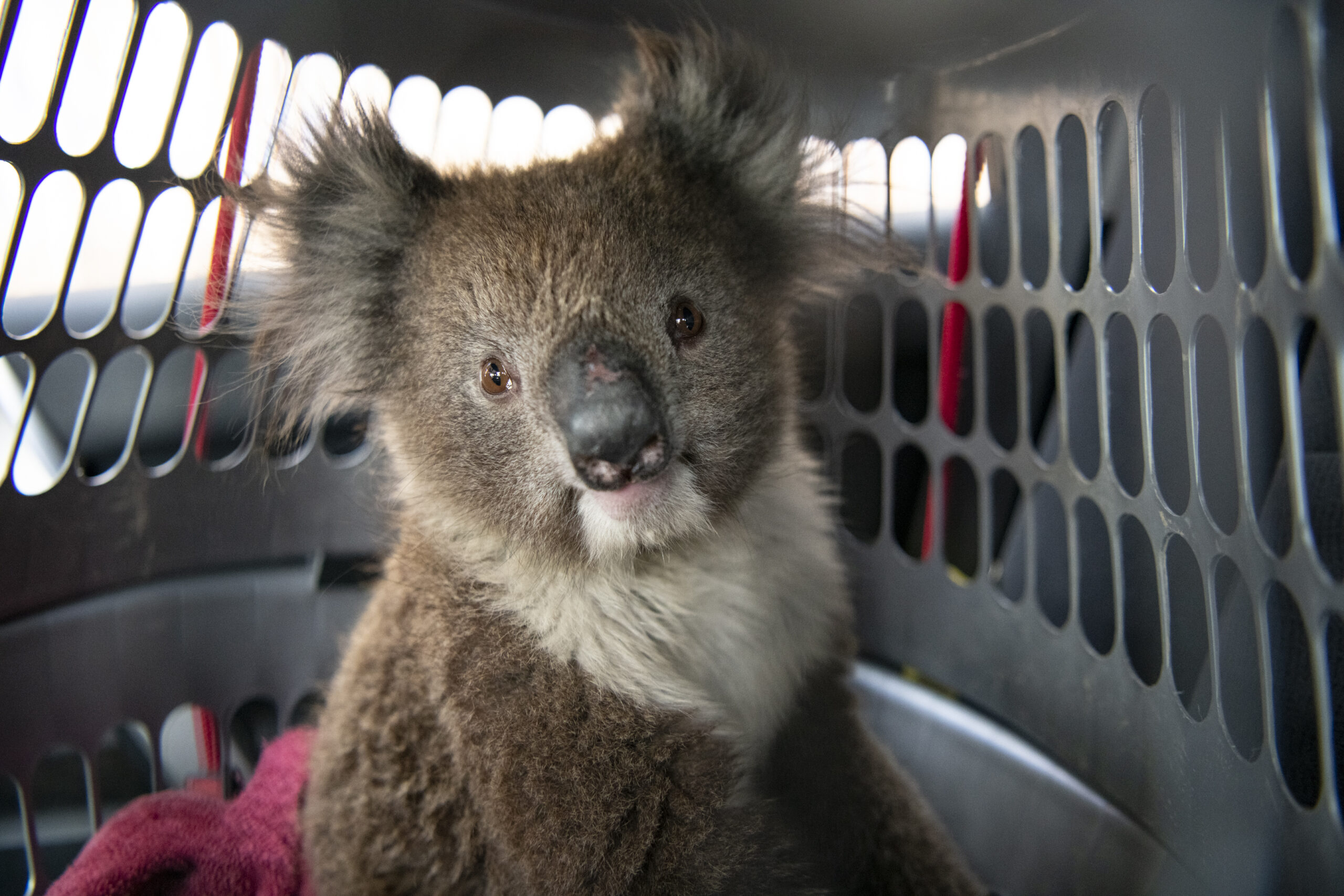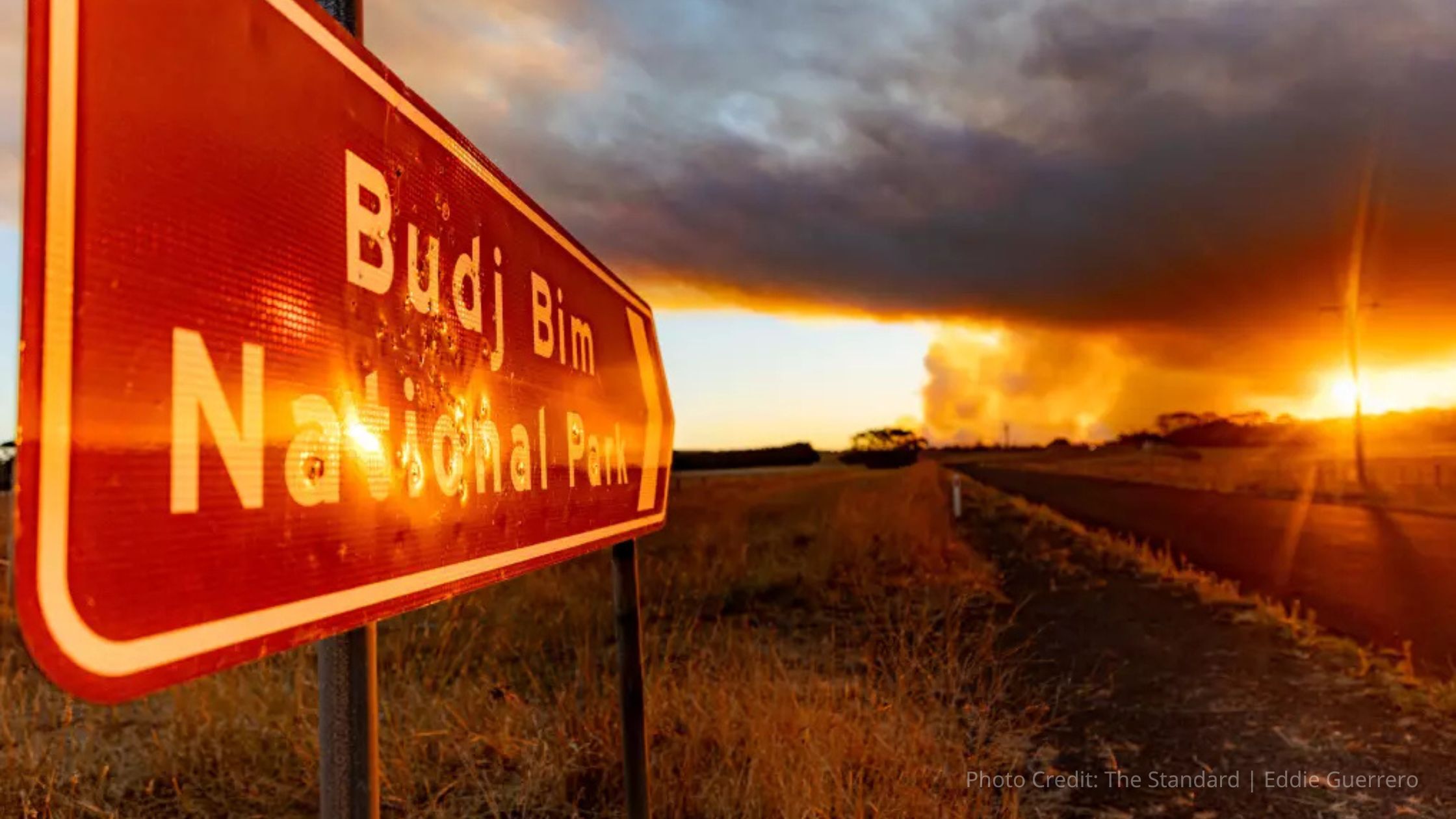Parliamentary inquiry into the management of blue gum plantations and koalas. Humane World for Animals is relieved to report that the koala shooting in Victoria’s Budj Bim National Park has stopped, with helicopters grounded last Friday, 25 April. Following fires in the area known to be home to a large...
As COVID-19 spreads in our communities, governments must finally act against wildlife trade. An all too familiar conservation and animal cruelty crisis, now wildlife trade is implicated in a public health emergency of unprecedented global proportions. Dare we hope governments will firmly clamp down?
The COVID-19 coronavirus is believed to have originated from a seafood and live animal ‘wet’ market in Wuhan, China. Wet markets are typically where legal and illegally traded animals are crammed into cages in unhygienic and stressful conditions awaiting slaughter and sale. Peer-reviewed science has demonstrated that the virus may have originated in Chinese horseshoe bats and been passed via an intermediate wildlife host to humans while in close proximity in wet markets. The species that acted as an intermediate host has not been identified for certain, although one research group in China has suggested it may be pangolins. Irrespective, transmission has occurred via close contact between humans and wildlife during wildlife trade which causes animals to be stressed and disease prone. In the past, wet markets have spawned other global health crises, including Severe Acute Respiratory Syndrome (SARS) and the deadly bird flu.
HSI has welcomed the initial response from the Government of China to place a ban on the sale of wild animals, captive bred and wild caught, for human consumption. This is China’s most decisive action yet to halt a trade that has been implicated in this emergency, and one that causes immense suffering for hundreds of thousands of animals each year, including endangered wildlife.
The capture, market trade, and butchery of wild animal species for human consumption happens across large parts of Asia and Africa such as Indonesia, India, Viet Nam, and West, Central and East Africa, as well as in Latin America, posing a very real threat of spreading zoonotic and potentially fatal diseases. Governments around the world must take China’s lead and shut down this trade for good. HSI offices in South Africa, Nepal, India, South Korea, Canada, the United States, Australia, Guatemala, Sri Lanka, Viet Nam, the United Kingdom, Honduras, El Salvador and Costa Rica are all calling for global action and HSI Australia supporters are taking action here.
There are at least signs the market is responding. Reports from Gabon are that illegal sales of the heavily and globally trafficked pangolin species are down.
Some governments are following China and starting to take it seriously.
In Viet Nam fourteen conservation organisations, including HSI, wrote an open letter to Prime Minister Nguyen Xuan Phuc to request his government take strong and sustainable actions to halt all illegal wildlife trade and consumption in Viet Nam. This letter motivated the Prime Minister to order Ministry of Agriculture and Rural Development to draft a directive by 1st of April 2020 to prevent illegal wildlife trade and consumption. HSI stands ready to assist.
Indonesia has hundreds of “extreme” animal markets where the conditions are perfect breeding ground for new zoonotic viruses. Wild animals are sold and slaughtered in public and unsanitary conditions. The trade takes place alongside that of dogs and cats which itself has already been shown to pose a risk of rabies transmission. In January this year, HSI wrote to Indonesia’s President Joko Widodo as part of the Dog Meat Free Indonesia coalition, calling for urgent measures to ensure that Indonesia does not become the next point of origin of a deadly virus by tackling the risk posed by these animal markets.
China has earned due praise for taking decisive action against wildlife trade for human consumption. However, wildlife is traded for human consumption, trinkets, traditional medicines and display, and all along the supply chain there are opportunities for viruses to spread to humans. Captive breeding of wild species such as civets, tigers and bears all pose risks. Since the wet markets are just the shop front, commercial breeding, trading and transporting wildlife must all be prohibited, and for all purposes, to remove the risk of other zoonotic viruses emerging.
It has always been that the legal trade in markets acts as a cover for illicit trading. Just as captive breeding farms act as a cover for laundering animals from the wildlife. Enforcement has been lax. If wildlife trade prohibitions become more clear-cut it would close off these gaping loopholes which make enforcement more difficult. But, even with comprehensive bans, wildlife traders are determined and serious investment in enforcement will be crucial.
The bans must be permanent. Wildlife trading is a multi-billion dollar business and a powerful lobby. Once the praise for taking action fades, and then this pandemic passes, there can be no lapsing in either law or enforcement. Surely this current coronavirus crisis will teach us that the stakes are far too high to do things by half measures.
Further reading and listening on this topic.
- Could COVID-19 end wildlife trade? (ABC) Dr Peter Li, China Policy Specialist for Humane Society International and an Associate Professor of East Asian Politics from the University of Houston-Downtown.
- https://www.abc.net.au/radionational/programs/rearvision/china,-wet-markets-and-the-wild-animal-trade/12028484 HSI Vice President for Wildlife Teresa Telecky is a guest on ABC Rear Vision
- https://www.mirror.co.uk/news/world-news/coronavirus-market-still-selling-rats-21694123.
- https://www.theguardian.com/environment/2020/mar/18/billion-dollar-wildlife-industry-in-vietnam-under-assault-as-law-drafted-to-halt-trading
- https://www.france24.com/en/20200316-pangolin-sales-plunge-in-gabon-over-coronavirus-fears
Nicola Beynon, Australia Head of Campaigns, has fought against wildlife trade with HSI for over two decades. She has successful campaigned for different species to be protected from trade at many conferences of the UN Convention on International Trade in Endangered Species.
Image credit: Tikki Hywood Trust


